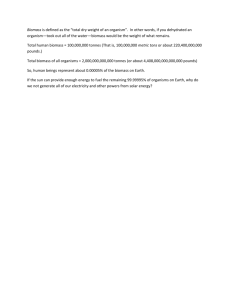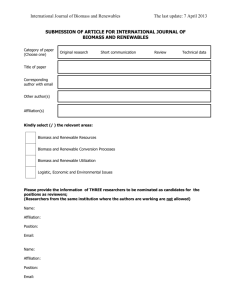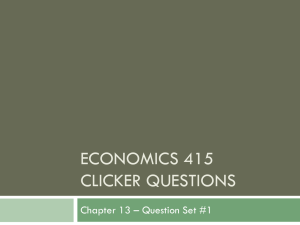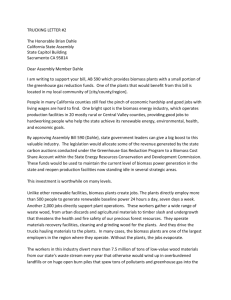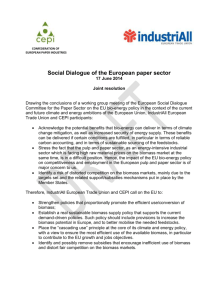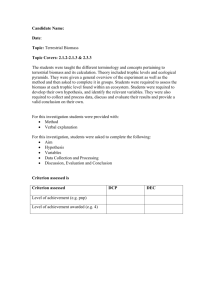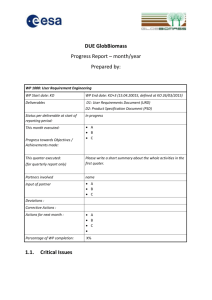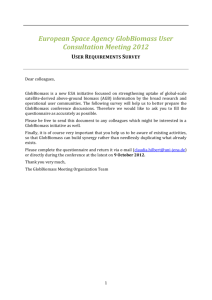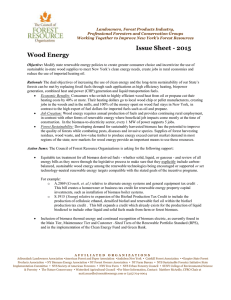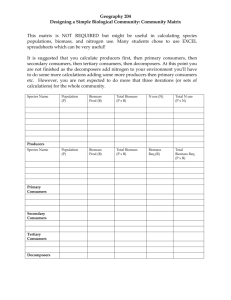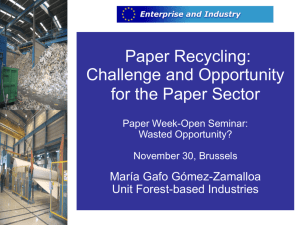US Energy Policy - The Center for Paper Business and Industry
advertisement
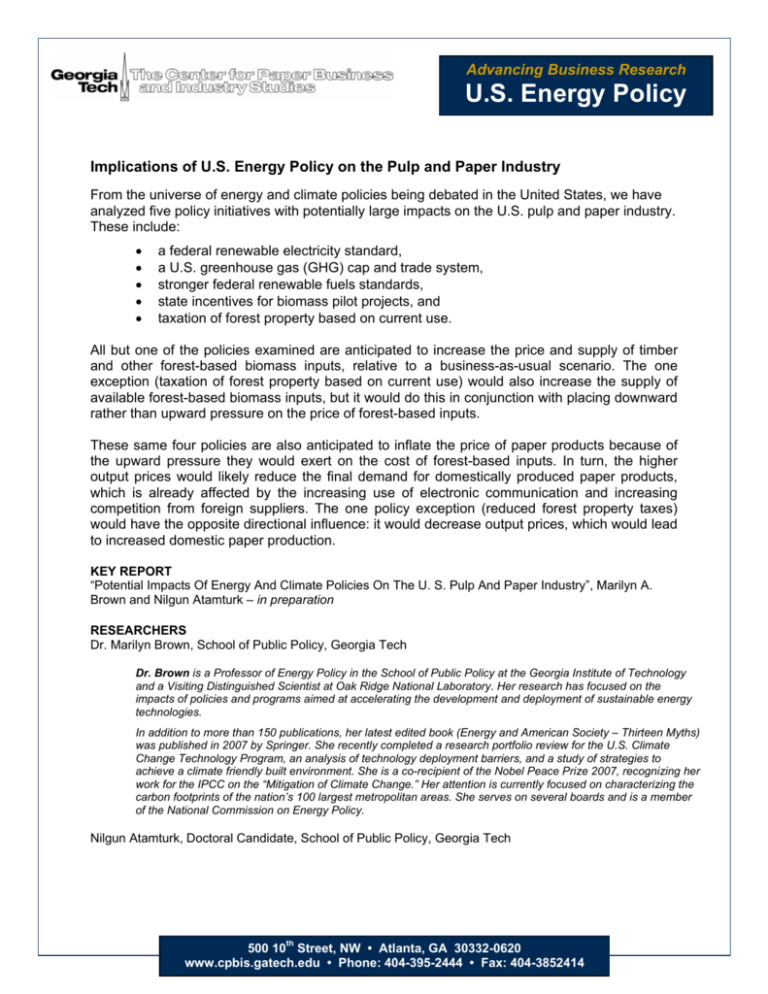
Advancing Business Research U.S. Energy Policy Implications of U.S. Energy Policy on the Pulp and Paper Industry From the universe of energy and climate policies being debated in the United States, we have analyzed five policy initiatives with potentially large impacts on the U.S. pulp and paper industry. These include: • • • • • a federal renewable electricity standard, a U.S. greenhouse gas (GHG) cap and trade system, stronger federal renewable fuels standards, state incentives for biomass pilot projects, and taxation of forest property based on current use. All but one of the policies examined are anticipated to increase the price and supply of timber and other forest-based biomass inputs, relative to a business-as-usual scenario. The one exception (taxation of forest property based on current use) would also increase the supply of available forest-based biomass inputs, but it would do this in conjunction with placing downward rather than upward pressure on the price of forest-based inputs. These same four policies are also anticipated to inflate the price of paper products because of the upward pressure they would exert on the cost of forest-based inputs. In turn, the higher output prices would likely reduce the final demand for domestically produced paper products, which is already affected by the increasing use of electronic communication and increasing competition from foreign suppliers. The one policy exception (reduced forest property taxes) would have the opposite directional influence: it would decrease output prices, which would lead to increased domestic paper production. KEY REPORT “Potential Impacts Of Energy And Climate Policies On The U. S. Pulp And Paper Industry”, Marilyn A. Brown and Nilgun Atamturk – in preparation RESEARCHERS Dr. Marilyn Brown, School of Public Policy, Georgia Tech Dr. Brown is a Professor of Energy Policy in the School of Public Policy at the Georgia Institute of Technology and a Visiting Distinguished Scientist at Oak Ridge National Laboratory. Her research has focused on the impacts of policies and programs aimed at accelerating the development and deployment of sustainable energy technologies. In addition to more than 150 publications, her latest edited book (Energy and American Society – Thirteen Myths) was published in 2007 by Springer. She recently completed a research portfolio review for the U.S. Climate Change Technology Program, an analysis of technology deployment barriers, and a study of strategies to achieve a climate friendly built environment. She is a co-recipient of the Nobel Peace Prize 2007, recognizing her work for the IPCC on the “Mitigation of Climate Change.” Her attention is currently focused on characterizing the carbon footprints of the nation’s 100 largest metropolitan areas. She serves on several boards and is a member of the National Commission on Energy Policy. Nilgun Atamturk, Doctoral Candidate, School of Public Policy, Georgia Tech 500 10th Street, NW • Atlanta, GA 30332-0620 www.cpbis.gatech.edu • Phone: 404-395-2444 • Fax: 404-3852414 Summary of Energy and Climate Policy Impacts: Expected Directional Changes Federal Renewable Electricity Standard Status Federal State Stronger Federal Renewable Fuels standards State Incentives for Biomass Pilot Plants Taxation of Forest Property Based on Current Use Refiners and other fuel producers Biomass energy producers Forestland owners Variable: four states exempt forest owners from property taxes Pending Mostly “upstream” sources of GHGs Pending In place in 33 states Regional pending In place in 9 states In place in numerous states Electricity suppliers Point of Impact U.S. GHG Cap and Trade Just enacted Short-term Impact on Inputs: Price of ForestBased Inputs ↑↑ ↑↑ ↑ ↑ ↓↓ Supply of ForestBased Inputs ↑↑ ↑↑ ↑ ↑ ↑↑ Short-term Impact on Outputs: Price of Paper Products ↑ ↑↑ ↑ ↑ ↓↓ Supply of Paper Products ↓ ↓↓ ↓ ↓ ↑↑ Price of Biomass Power ↓ ↓↓ - ↓ ↓↓ Supply of Biomass Power ↑↑ ↑↑ - ↑ ↑↑ Price of Ethanol - ↓ ↓ ↓ - Supply of Ethanol - ↑ ↑ ↑ - 500 10th Street, NW • Atlanta, GA 30332-0620 www.cpbis.gatech.edu • Phone: 404-395-2444 • Fax: 404-3852414
